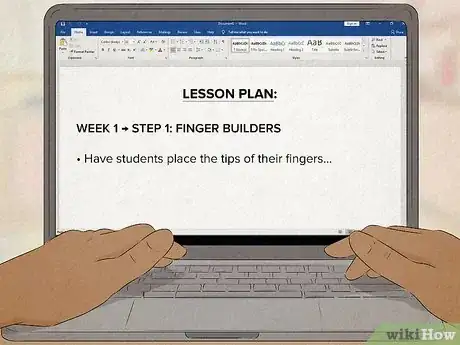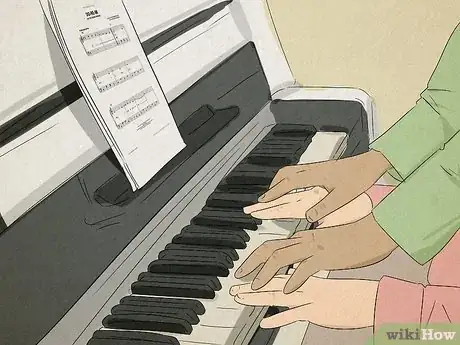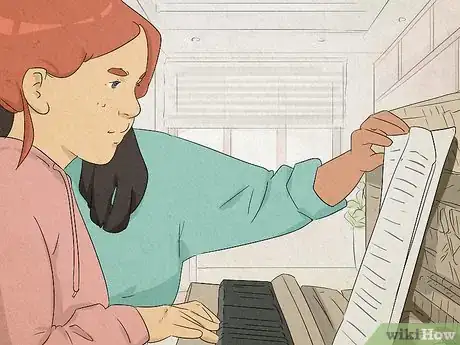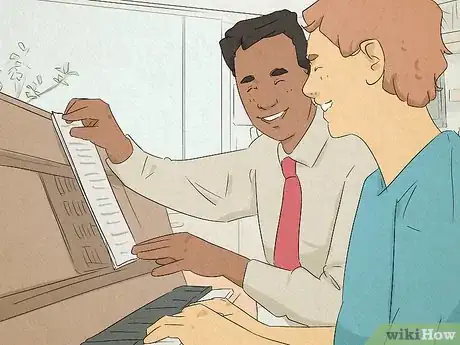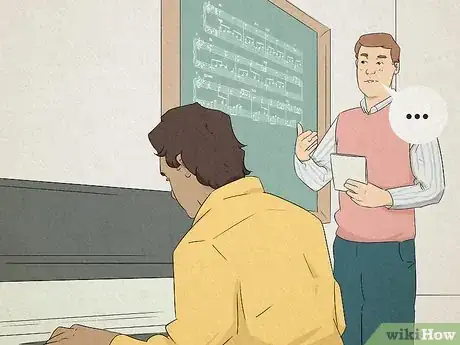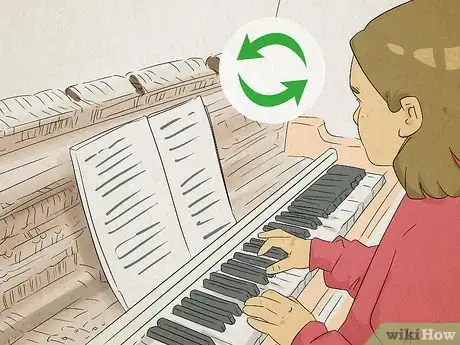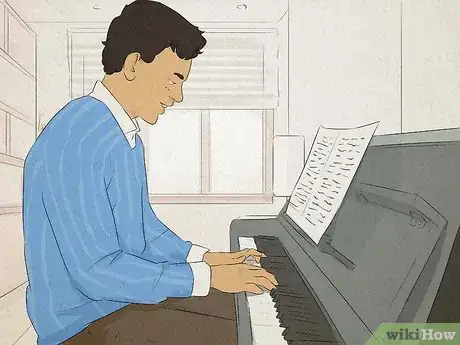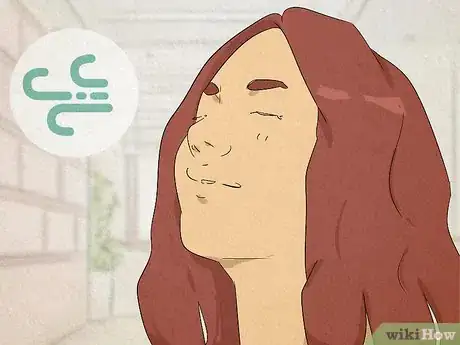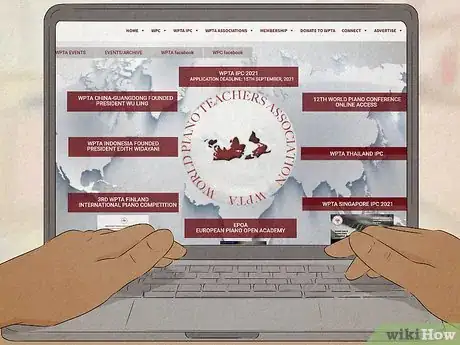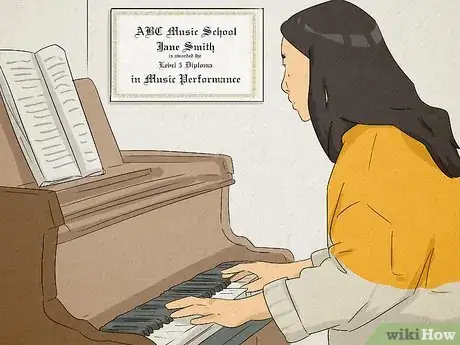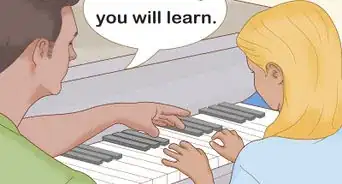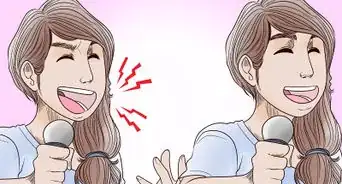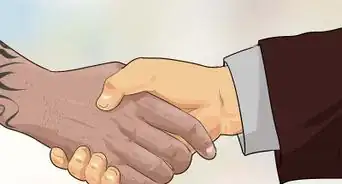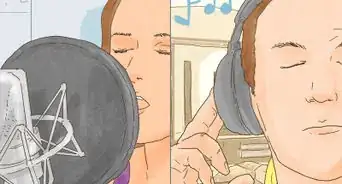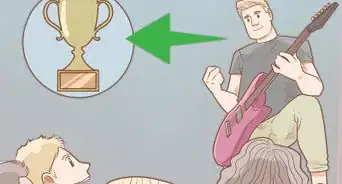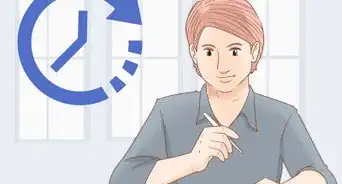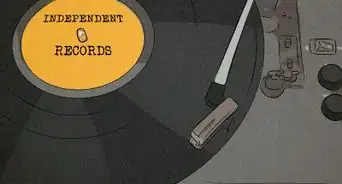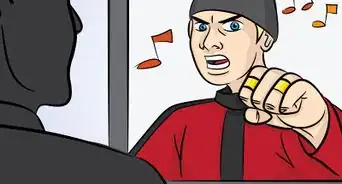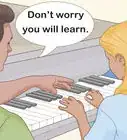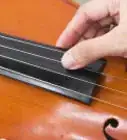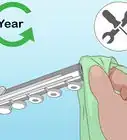X
wikiHow is a “wiki,” similar to Wikipedia, which means that many of our articles are co-written by multiple authors. To create this article, 28 people, some anonymous, worked to edit and improve it over time.
This article has been viewed 38,428 times.
Learn more...
Being a good piano teacher requires a lot more than playing skill. You'll need to empathize with students, guide them through difficult challenges, and motivate them to improve. Be prepared to share your knowledge with students from all perspectives, including people who do not yet share your dedication to the instrument.
Steps
Method 1
Method 1 of 2:
Teaching Piano Students
-
1Develop a lesson plan for each student. A major pitfall for some new piano teachers is focusing too much on the lesson plan, at the expense of the student. Students learn at different paces, and have different strengths and weaknesses. Tailor your teaching to each student's needs. Keep an open dialogue about the student's musical tastes, and how he feels about the pieces and exercises you've assigned.
-
2Start with the basics. If you're new to piano teaching, you may spend more time than you expect on finger position, middle C, and other basic concepts. This is especially true if you are teaching young children.
- Try letter notation to introduce students to reading music. Move on to regular staff notation once the student is ready.
- Even some intermediate students may not have the type of training you expect. Do not assume they can read music or identify key signatures.
Advertisement -
3Focus on problem areas. Take notes on where your student struggles, then adjust his lessons and homework to focus on those areas. During a lesson, have him play a song once through, then guide him through repetitions of the sections he had trouble with.
- Don't overdo it with difficult assignments, especially if the student is not devoted to the piano. Keep the student motivated by including pieces that he excels at or particularly loves.
-
4Make lessons fun. Use games, repetition, and mnemonics to help students engage with the lesson. Try inciting student to want to excel, by introducing them to things like some of Liszt's Transcendental Etudes. Find a balance of fun and focus that works with your teaching style. This is especially important for children, who often learn best in a relaxed, but not distracting, atmosphere.
- Young kids often respond well to reward systems. Try putting up a sticker chart and offering a prize when the student fills it with stickers.
- A big part of this is giving students some choice over which pieces to play, or the chance to explore a style of music that appeals to them.
-
5Provide honest criticism. The best way to help a student improve is to hold her to a high standard. If you aren't strict about technique, the student may develop bad piano habits. This is especially true for advanced students who are serious about improving, but even a young beginner needs a teacher who can hold them to basic standards.
- Criticism does not mean negativity. Acting exasperated, angry, or condescending will demotivate your students.
-
6Encourage practicing. Many students are reluctant to practice, being more interested in sports or being with their friends instead, which can make all your work together nearly useless. Keep an eye out for students who don't (or won't) practice, and talk to them (and if necessary, their parents) about ways to motivate them. If the student doesn't want to learn, the lessons will not lead anywhere.
Advertisement
Method 2
Method 2 of 2:
Improving Your Teaching Skills
-
1Keep up your own piano skills. You do not need to be a virtuoso, but you cannot afford to cut corners either. Excellent sight-reading ability, knowledge of music theory, and good technique are all requirements for teaching piano.
-
2Cultivate patience. As a piano expert, you know how difficult it can be to learn an instrument. You will need large reserves of patience to draw on, especially for difficult or unmotivated students. Do not let frustrating moments trigger unnecessary negativity.
-
3Join music teacher associations. Look for organizations on the local, state, or national level related to music teaching. Join these so you can share knowledge with your colleagues, and so you can pass on recital, audition, and competition opportunities to your students.
-
4Invest in professional development. If you already have teaching experience, you know that you need more than piano skills to be a good teacher. If you haven't already, consider earning a continuing education certificate or a similar qualification in music teaching.
- Even if you are not able to enroll in a full course, spend time reviewing different lesson sets, reading books on pedagogy, and trading tips with other music teachers.
Advertisement
Community Q&A
-
QuestionWill it be better to test the student on piano?
 Community AnswerDifferent students will have different characters, and not necessarily all students can use this method. However, testing the student on the piano might give you a rough idea of their level, although in some cases, they improve as they learn and some might get poorer as they learn, so don't take it as your first impression seriously.
Community AnswerDifferent students will have different characters, and not necessarily all students can use this method. However, testing the student on the piano might give you a rough idea of their level, although in some cases, they improve as they learn and some might get poorer as they learn, so don't take it as your first impression seriously.
Advertisement
Warnings
- Arrange a payment plan before beginning the lessons or taking a new student. Write down your policies regarding these formalities and give a copy to each new student.⧼thumbs_response⧽
Advertisement
About This Article
Advertisement
